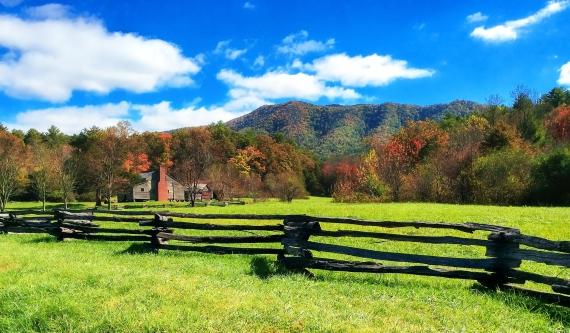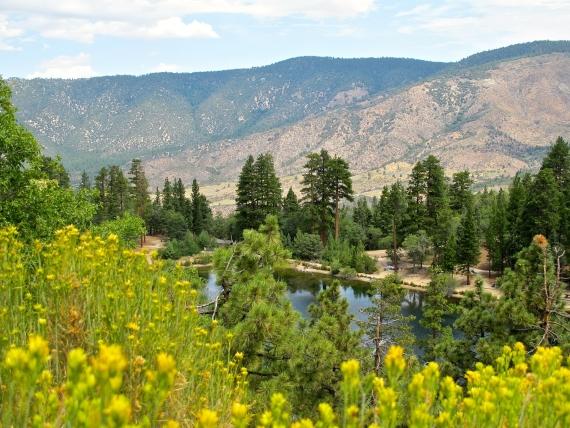Buy to Rent Land - Is It a Good Idea?
Posted: May 14, 2016 by LandCentury

When youre an investor, youll find that there are multiple ways to make money from land. Many investors will do the math (more on that soon) and sit on their investment before selling for a high profit years or even decades down the road. Other investors want to make money immediately, and this can be done by renting the land out.
Since there are a lot of logistics to figure out, renting land out can be very complicated. Youll need to consider:
* Location
* Scarcity
* Benefits (hunting, waterfront, middle of the city, etc.)
And no matter the type of rental, it can be difficult to assess how profitable the rental will be.
Determining the Cost Effectiveness of Not Renting
When you choose not to rent your land, you already have a few factors working against you. These factors include:
Loan Interest: If you took out a loan to purchase the land, you need to account for all of the interest that will accrue before the loan is satisfied. This figure can be very high in some cases, wherein a $10,000 parcel may end up costing $12,000 or more at the end of the loan.
Property Taxes: Taxes will be assessed on the property. If there are no structures present, youll pay a much lower property tax. But its essential to try and determine what your annual property taxes will be.
Finally, you need to be able to determine how much the land will appreciate in value over the lifetime of ownership. Land appreciation values are difficult to assess because of the state and city variations. Its best to study land prices in and around the property you own to be able to determine how much land prices have gone up over a 10-year period, for example.
Using this data, you can:
1. Forecast the lands value in 10, 20, 30, etc. years
2. Calculate profit by taking the forecast value and subtracting the purchase value
3. Add up interest and property tax costs over the lifetime of ownership (dont forget to multiply by how many years the property will be kept)
4. Subtracting total costs from the calculated profit
For example, you may have the following piece of land:
* Purchased for $10,000
* Forecast value in 10 years of $14,000
* Taxes and interests of $200 per year
So, we would take $14,000 - $10,000 to come to a profit of $4,000 ($200 * 10) for a total profit after costs of $2,000.
And this isnt a bad figure considering all you had to do was purchase the land and let it sit. But in some cases, the person may have an abnormally high interest or property tax rate that eats away at their profits and puts them in the negative. In this case, a person may actually be losing money on their investment, which is never a smart choice.
Renting Factors and Considerations
When you rent land, you want it to be as hands-free and cost-free as possible. In the above scenario, there are little-to-no costs involved with the upkeep and maintenance of the land. But when you rent the land, there may be additional costs:
* Insurance policies
* Landscaping and maintenance
These are the two major considerations. Since you own the land, you will be held liable for injuries that occur on the property, so youll need the proper insurance. For example, if you rented the property to a tenant and they never alerted you of a hole on the property, you may be held liable. If a person were to become injured, it may be your responsibility to fix the hole.
But with the right contract in place, you may have a written agreement wherein the renting party will be 100% responsible for the upkeep of the land. This is an ideal scenario.
When you rent land, its money in your pocket. In the ideal case, you would:
* Cover loan payments
* Cover property taxes
* Gain a small amount of additional income
Work is involved in renting land, such as finding someone to rent the land and ensuring all of the legalities have been followed accordingly. But if you dont mind a little work, you can have zero expenses to pay and reap a much higher profit as a result when or if you decide to sell the land.
Renting Land Options
You know that you can rent land, but who is actually looking to rent land?
Farmers: There are hundreds of farmers renting land for crops and grazing. These individuals are long-term renters, and this is the ideal tenant.
Hunters: If you live in an area with an abundance of wildlife, hunters may want to rent the hunting rights to the land.
Residents: People in trailers or tiny homes may choose to rent your land. Smaller upfront capital will be required, and these individuals will rent the land for top dollar.
If you own a property in a highly desired area, like in the middle of a city on a populated street, you may be able to sign a long-term rental agreement with a business. McDonald's and companies of this size have been known to rent land in populated cities for thousands or tens of thousands of dollars a month.
While you need to be very lucky to find these properties, they do exist, or will exist in cities that become populated over time. The downside is that youll be locked into a long-term agreement, but youll make a lot of money in the process.
Is it a good idea to buy to rent?
Yes, if it can be profitable. You need to conduct your own research in your area to determine the profitability of the venture. In some cases, too much work will be needed, making the idea of buying to rent less viable. But if you can rent the land to someone reliable, trustworthy and at a good profit, it only makes sense to make some money while the land appreciates in value.
Since there are a lot of logistics to figure out, renting land out can be very complicated. Youll need to consider:
* Location
* Scarcity
* Benefits (hunting, waterfront, middle of the city, etc.)
And no matter the type of rental, it can be difficult to assess how profitable the rental will be.
Determining the Cost Effectiveness of Not Renting
When you choose not to rent your land, you already have a few factors working against you. These factors include:
Loan Interest: If you took out a loan to purchase the land, you need to account for all of the interest that will accrue before the loan is satisfied. This figure can be very high in some cases, wherein a $10,000 parcel may end up costing $12,000 or more at the end of the loan.
Property Taxes: Taxes will be assessed on the property. If there are no structures present, youll pay a much lower property tax. But its essential to try and determine what your annual property taxes will be.
Finally, you need to be able to determine how much the land will appreciate in value over the lifetime of ownership. Land appreciation values are difficult to assess because of the state and city variations. Its best to study land prices in and around the property you own to be able to determine how much land prices have gone up over a 10-year period, for example.
Using this data, you can:
1. Forecast the lands value in 10, 20, 30, etc. years
2. Calculate profit by taking the forecast value and subtracting the purchase value
3. Add up interest and property tax costs over the lifetime of ownership (dont forget to multiply by how many years the property will be kept)
4. Subtracting total costs from the calculated profit
For example, you may have the following piece of land:
* Purchased for $10,000
* Forecast value in 10 years of $14,000
* Taxes and interests of $200 per year
So, we would take $14,000 - $10,000 to come to a profit of $4,000 ($200 * 10) for a total profit after costs of $2,000.
And this isnt a bad figure considering all you had to do was purchase the land and let it sit. But in some cases, the person may have an abnormally high interest or property tax rate that eats away at their profits and puts them in the negative. In this case, a person may actually be losing money on their investment, which is never a smart choice.
Renting Factors and Considerations
When you rent land, you want it to be as hands-free and cost-free as possible. In the above scenario, there are little-to-no costs involved with the upkeep and maintenance of the land. But when you rent the land, there may be additional costs:
* Insurance policies
* Landscaping and maintenance
These are the two major considerations. Since you own the land, you will be held liable for injuries that occur on the property, so youll need the proper insurance. For example, if you rented the property to a tenant and they never alerted you of a hole on the property, you may be held liable. If a person were to become injured, it may be your responsibility to fix the hole.
But with the right contract in place, you may have a written agreement wherein the renting party will be 100% responsible for the upkeep of the land. This is an ideal scenario.
When you rent land, its money in your pocket. In the ideal case, you would:
* Cover loan payments
* Cover property taxes
* Gain a small amount of additional income
Work is involved in renting land, such as finding someone to rent the land and ensuring all of the legalities have been followed accordingly. But if you dont mind a little work, you can have zero expenses to pay and reap a much higher profit as a result when or if you decide to sell the land.
Renting Land Options
You know that you can rent land, but who is actually looking to rent land?
Farmers: There are hundreds of farmers renting land for crops and grazing. These individuals are long-term renters, and this is the ideal tenant.
Hunters: If you live in an area with an abundance of wildlife, hunters may want to rent the hunting rights to the land.
Residents: People in trailers or tiny homes may choose to rent your land. Smaller upfront capital will be required, and these individuals will rent the land for top dollar.
If you own a property in a highly desired area, like in the middle of a city on a populated street, you may be able to sign a long-term rental agreement with a business. McDonald's and companies of this size have been known to rent land in populated cities for thousands or tens of thousands of dollars a month.
While you need to be very lucky to find these properties, they do exist, or will exist in cities that become populated over time. The downside is that youll be locked into a long-term agreement, but youll make a lot of money in the process.
Is it a good idea to buy to rent?
Yes, if it can be profitable. You need to conduct your own research in your area to determine the profitability of the venture. In some cases, too much work will be needed, making the idea of buying to rent less viable. But if you can rent the land to someone reliable, trustworthy and at a good profit, it only makes sense to make some money while the land appreciates in value.




